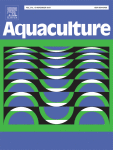It seems to be generally thought that stony corals do not feed on phytoplankton, but rather zooplankton.
I've been seeing some amount of research from the last 5-10 yrs indicating that might not be true. However, this has all been with species I don't believe are commonly kept in reef keeping.
I finally found some research that seems more relevant; various acropora species feeding on phytoplankton.
Elucidating an optimal diet for captive Acropora corals

 www.sciencedirect.com
www.sciencedirect.com
Tldr; they found various acropora species grow well on Isochrysis galbana.
I can't find a public/free version of the paper, but I might have to pay up for access.
I am curious whether they were feeding live phyto and if/how they measured the consumption rates.
I've been seeing some amount of research from the last 5-10 yrs indicating that might not be true. However, this has all been with species I don't believe are commonly kept in reef keeping.
I finally found some research that seems more relevant; various acropora species feeding on phytoplankton.
Elucidating an optimal diet for captive Acropora corals

Elucidating an optimal diet for captive Acropora corals
Developing an optimal heterotrophic feeding regime has the potential to improve the growth and overall health of captive corals. This study evaluated …
Tldr; they found various acropora species grow well on Isochrysis galbana.
I can't find a public/free version of the paper, but I might have to pay up for access.
I am curious whether they were feeding live phyto and if/how they measured the consumption rates.


















